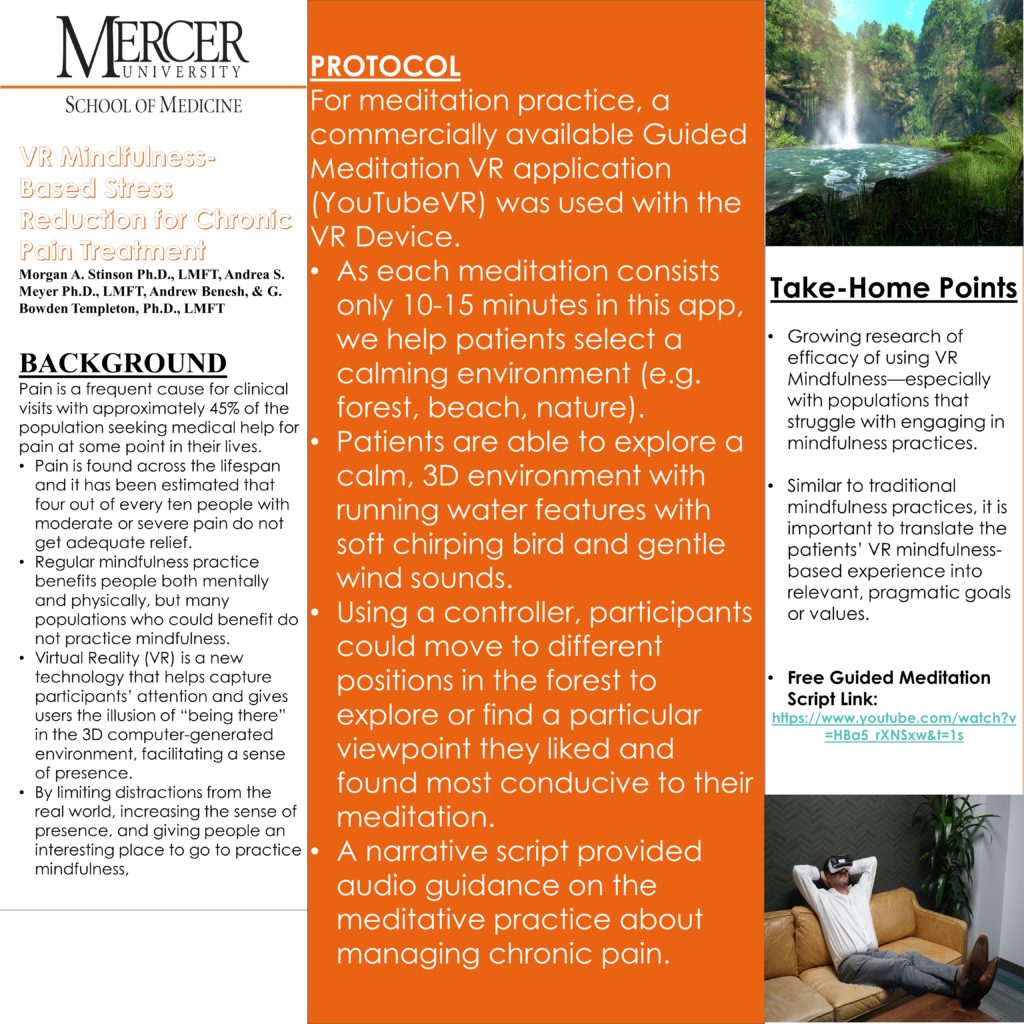Perhaps one of the more difficult tasks for behavioral health providers is to keep abreast of all of the latest clinical developments, in both research and practice. One of the burgeoning clinical topics is dealing with acute and chronic pain. Pain is a frequent cause for clinical visits with approximately 45% of the population seeking medical help for pain at some point in their lives. Pain is found across the lifespan and it has been estimated that four out of every ten people with moderate or severe pain do not get adequate relief. One common form of treatment for acute or chronic pain is opioid analgesics. The complexity of this condition involves neurobiological, psychological, and social dimensions, and as such, no universal treatment exists. Although pharmacological approaches are the most common treatment method, they cannot address all aspects of the condition. Moreover, analgesics such as opioids can have serious side effects, including dependency and addictive tendencies. The misuse of opioids is a public health crisis in many communities across the country. Regular mindfulness practice benefits people both mentally and physically, but many populations who could benefit do not practice mindfulness. Virtual Reality (VR) is a new technology that helps capture participants’ attention and gives users the illusion of “being there” in the 3D computer-generated environment, facilitating a sense of presence. By limiting distractions from the real world, increasing the sense of presence, and giving people an interesting place to go to practice mindfulness, Virtual Reality may facilitate mindfulness practice. Presenters will demonstrate how to incorporate VR mindfulness-based strategies in a clinical setting. Finally, participants will formulate ideas on applying VR mindfulness strategies to facilitate behavioral changes and discuss integrating VR mindfulness into their current clinical practice.
Spring Virtual Conference April 17-18th | In-Person Annual Conference in San Antonio, TX Oct 24-26th


I found this fascinating and relevant to some of what we are doing (planning stages) of connecting issues of pain to forms of alternative medicine and stress/coping techniques. I would love to know a bit more about your patients’ experience and whether you have results to share. I am also interested in the cost of the devices. We were thinking about bringing in people to host mindfulness sessions but this is much more patient-centered.